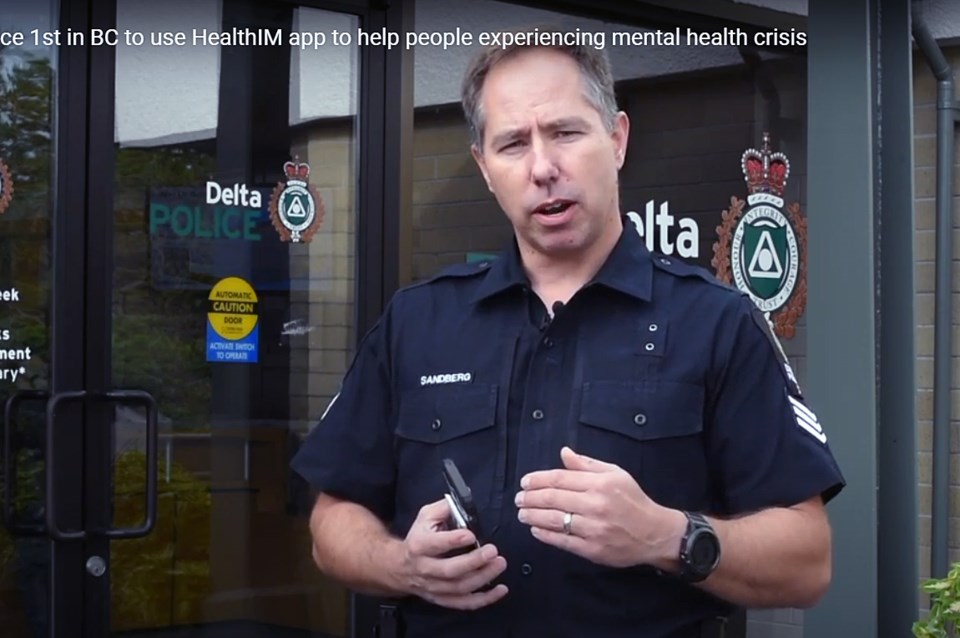Part of the sweeping measures announced Nov. 20 to cut crime includes new cellphone software that will help police across B.C. make better decisions at mental health calls.
It’s called HealthIM and in return for spending a few minutes inputting some details about the person they’re dealing with, police can do better assessments, better understand the person’s behaviour and learn about the risks they may be facing.
The information also is automatically relayed to the hospital that will be receiving the person, giving doctors and nurses advance information, or warnings, they need for faster admission.
But Delta Police Department introduced the system three years ago and have been using it for the last year and a half.
“I think that it’s done a lot,” said Insp. James Sandberg.
“It’s improved nursing safety for sure. In terms of how we deal with the patient, it’s improved that situation.
“Longterm, it’s made us better, more consistent at assessing people and situations,” and made apprehensions less subjective and more evidence based, Sandberg said.
The program was announced Nov. 20 as part of the government’s new Safer Communities Action Plan.
According to a news release from the premier’s office, the app guides police officers, by asking questions, to help them understand the behaviour of the person in crisis. A report will be generated using clinical language for other responders.
The app can also store information about people that can be used if police have had previous encounters and can offer tips about triggers, de-escalation tips, flagging violence or weapons. It also provides a risk analysis in three categories, risk of harm to themselves, risk of harm to others or inability to care for themselves.
Sandberg said that officers are trained to use the app in an advisory function only and that they have the ultimate decision on what action to take.
“The officers are going to make the decision, independently of the app, to apprehend or not,” Sandberg said.
Usually, two officers attend mental health calls, which allows one to input the information while the officer interacts with the person.
At the same time, designated hospitals for mental health apprehensions, such as Surrey Memorial Hospital, will receive a copy and be warned about the likelihood of violence or weapons.
The reports from Delta police will become part of a patient’s health record, so doctors are informed as well.
Sandberg said the system reduces the wait time in hospitals for officers if they’re delivering someone under the Mental Health Act. That reduced waiting time for police officers has paid for the annual cost of the software, he pointed out.
With Delta police the only force in B.C. now using the app, Sandberg said some nursing staff are not familiar with the app, but if it’s implemented province-wide, it will become generally accepted.
B.C. though is playing catch up to the rest of the country.
“Alberta has mandated it provincewide. Saskatchewan, I think has mandated it provincewide (2018). RCMP in Manitoba are using it,” and most city police forces in Ontario are using it, Sandberg said.
“Delta just happens to be the first one in B.C.”
The program also has gone through a privacy impact assessment to ensure it doesn’t breach any laws.
He added that even if a person is not apprehended, her or his assessment can be forwarded to local mental health centres.
“It’s creating the opportunity to do outreach. It’s bringing that person to the attention of the community health office,” Sandberg said.
Ideally, it could help people avoid getting into crisis and reduce the number of involuntary apprehensions, he added.
“It makes the apprehension situation safer in a majority of instances. If there is data on that person and we know that data going in, it improves the situation for everybody involved.”
The government is working with police and health agencies but there's no implementation date for the rest of the province, said the Ministry of Public Safety and Solicitor General.


